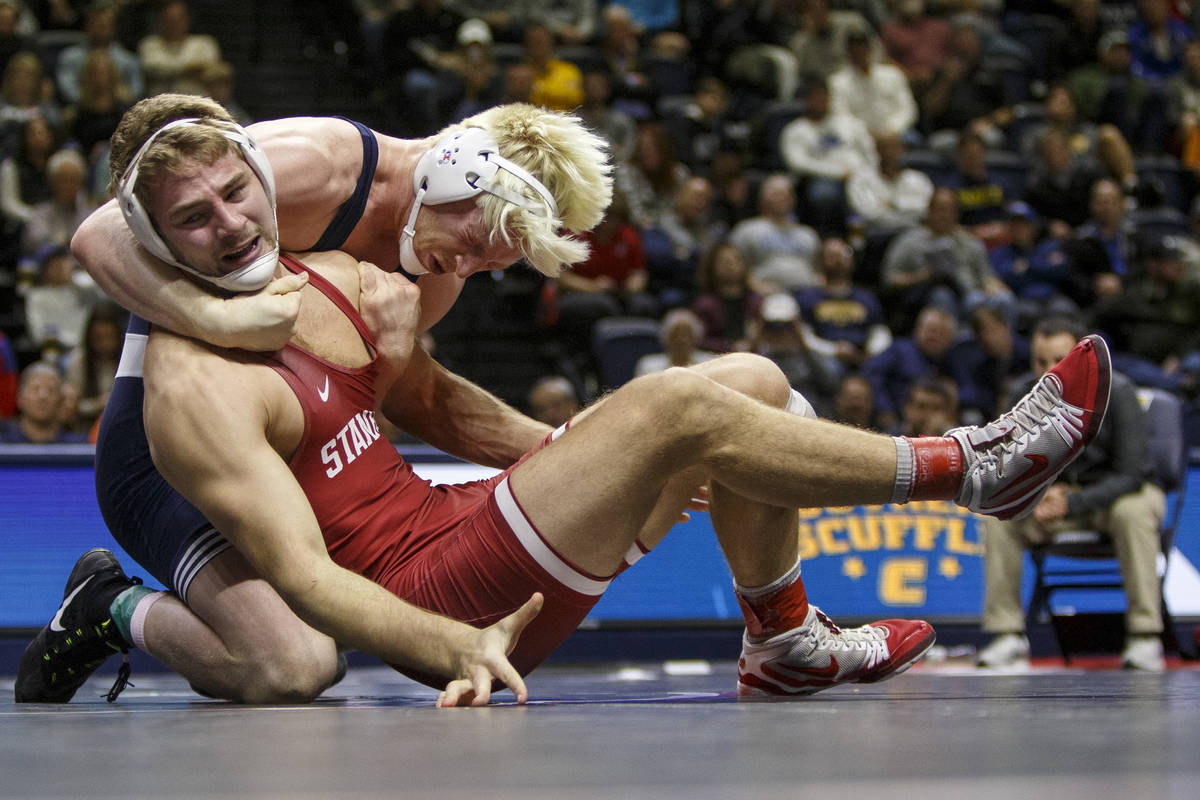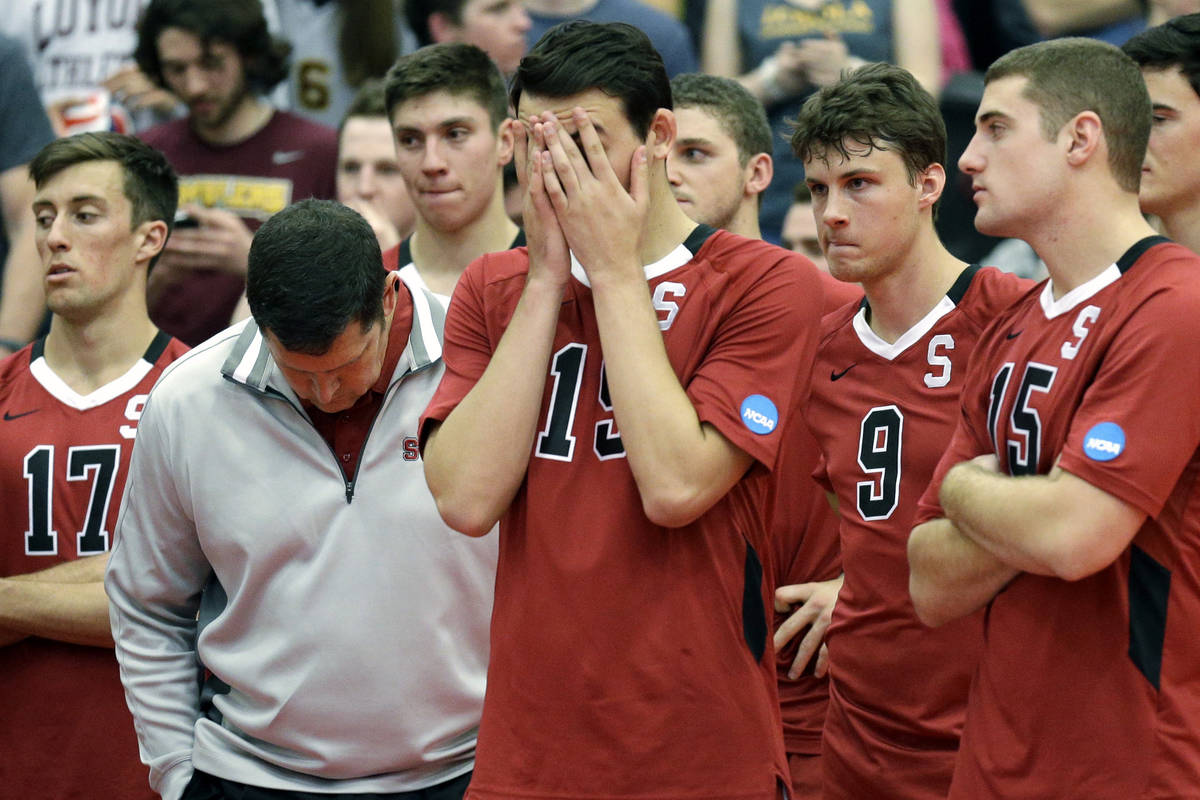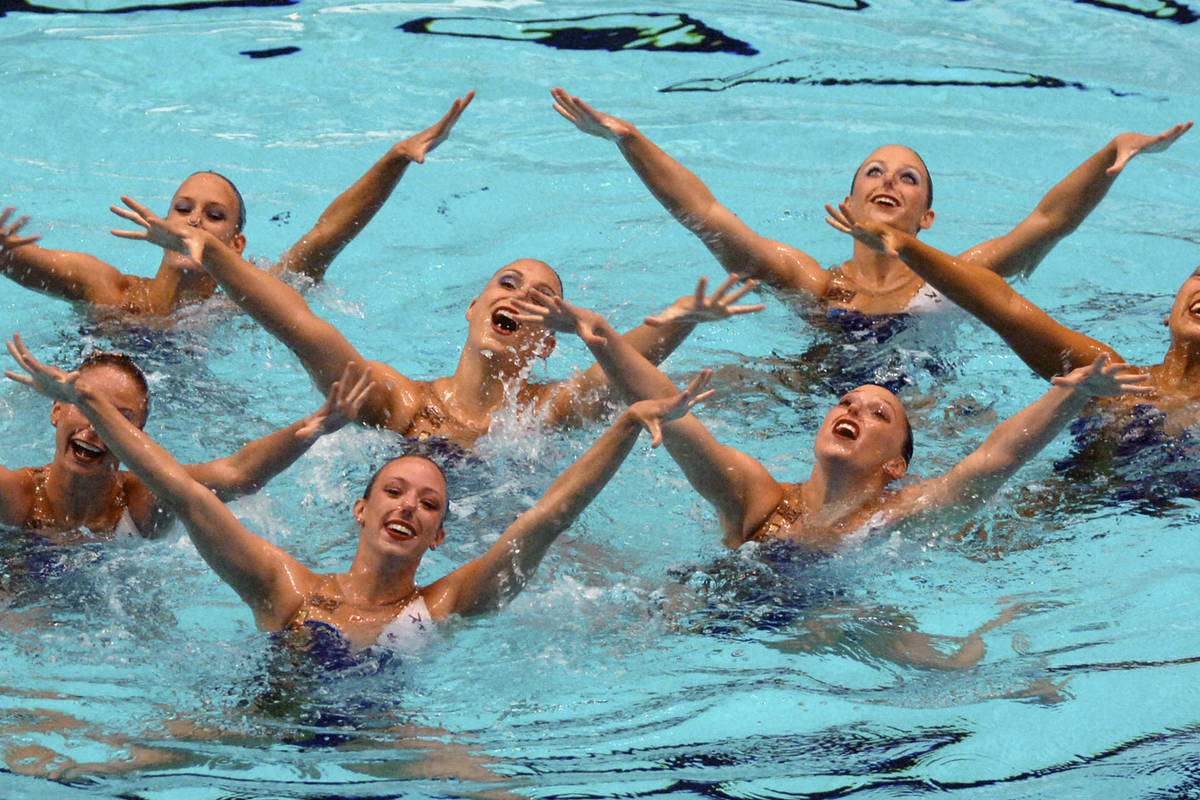Pandemic making it easier to justify NCAA cutbacks
These are unprecedented times in college sports, as a pandemic that few apparently saw coming has influenced their long-term viability in ways not imagined.
But could it also be that COVID-19 is doing the dirty work for presidents and athletic directors who consider nonrevenue sports a bane on their budgets? And were seeking a reason to eliminate them even before the spread of coronavirus?
“Absolutely we were headed in that direction,” said Jim Livengood, who spent 28 years as an NCAA athletic director at Southern Illinois, Washington State, Arizona and UNLV.
The former men’s basketball selection committee chairman said with spending on coaching salaries and facilities spiraling out of control, harsh cuts were inevitable even without the spread of disease and red ink on the bottom line.
“It’s cause and effect, and the coronavirus probably speeded those things (sacrificing programs) up,” Livengood said.
He’s not the only one who believes nonrevenue sports were in the crosshairs even before the NCAA men’s basketball tournament was canceled in March. The virulent virus has spiked, and now it is jeopardizing the football season and massive revenue streams that sustain the less spectator friendly sports.
“I think you’re looking at it like, ‘OK, here’s my opportunity to strip it back down,’” Liberty baseball coach Scott Jackson told ESPN, adding that one school that had cut programs was operating at a $5 million deficit even before social distancing.
“How is that possible?” Jackson asked.
Scaling back
Easily explained, Livengood said. Schools are spending too much on luxuries rather than focusing on necessities.
Battalions of football and basketball assistants, putting up the football team at 5-star hotels on nights before home games, spring football, crisscrossing the country in chartered jets to play nonconference games … the list of frivolous expenditures goes on longer than an Alabama-Clemson game with a full complement of TV timeouts.
“Back in my (Washington State) days, we had a rifle team that would travel with the football team for a Friday night match — that’s a thing nobody would think of today,” Livengood said about college sports having becoming big business rather than part of the educational experience.
But, he added, “they’re probably going to have to happen in the future, because I don’t think (college sports) are going to survive if they don’t.”
Pat Christenson has seen all sides of the issue as a participant, coach, administrator and de facto fundraiser as former director of UNLV’s Sam Boyd Stadium and Thomas & Mack Center. He believes now would be a good time to trim fat, reduce costs and develop a new streamlined athletic department model that enables conferences and athletes to coexist regardless of stature or sport.
Not that he expects one.
“It all comes down to the philosophy and the culture of college sports today that is about winning and competing in football and basketball,” Christenson said. “That has driven the inability to better fund the Olympic sports.”
When Christenson won the NCAA 167-pound wrestling title at Wisconsin in 1976, he said the Badgers had a sweaty 300 square-foot facility consisting of dressing cages, a bench and a scale. Now, thanks to the football team’s success, it’s 3,000 square feet with study rooms and more bells and whistles than a runaway freight train.
Christenson said Wisconsin was a top 5 wrestling program when he competed. And that today, despite all the money being spent, it’s closer to top 15.
To his point — and as college sports desperately fight for survival during a pandemic whose end seems nowhere in sight —it has become clear that rewarding 6-6 football teams with bowl game berths that wind up costing their schools money is a paradigm whose time has passed.
Contact Ron Kantowski at rkantowski@reviewjournal.com or 702-383-0352. Follow @ronkantowski on Twitter.
Eliminated programs
NCAA Division I programs that have been cut since the onset of COVID-19:
Akron – men's cross country, men's golf, women's tennis
Appalachian State – men's soccer, men's tennis, men's indoor track and field
Boise State – baseball, swimming and diving
Bowling Green – baseball (program reinstated with private funding on June 3)
Brown – men's and women's fencing, men's and women's golf, women's skiing, men's and women's squash, women's equestrian, men's track and field, men's cross country (all downgraded to club sports)
Central Michigan – men's track and field
Chicago State – baseball
Connecticut – men's cross country, women's rowing, men's swimming and diving, men's tennis
Cincinnati – men's soccer
East Carolina – men's and women's tennis, men's and women's swimming and diving
Florida International – men's indoor track and field
Furman – baseball, men's lacrosse
Northern Colorado – men's and women's tennis
Old Dominion – wrestling
Southern Utah – men's and women's tennis
Stanford — men's and women's fencing, field hockey, lightweight rowing, men's rowing, co-ed and women's sailing, squash, synchronized swimming, men's volleyball and wrestling
Western Illinois – men's and women's swimming and diving (suspended)
Winthrop – men's and women's tennis
Wisconsin-Green Bay – men's and women's tennis
Wright State – softball, men's + women's tennis
Source: Various internet




















